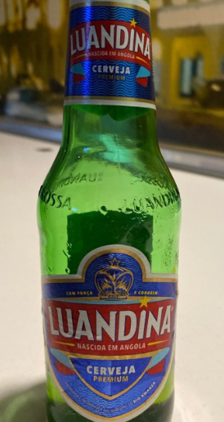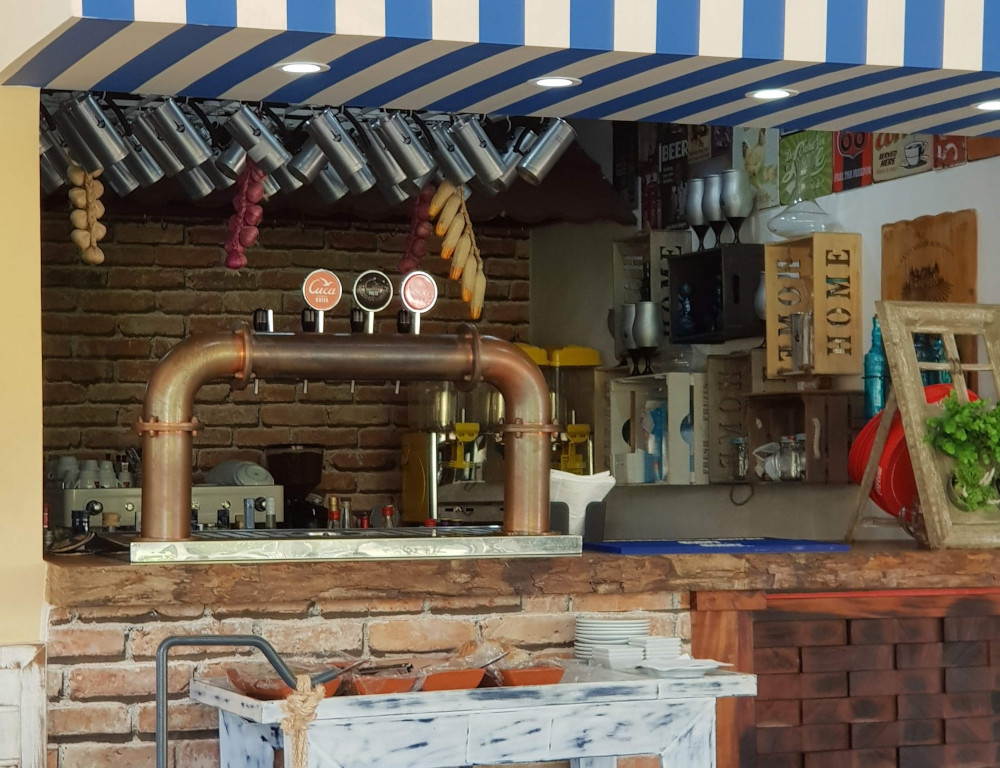Angola: Isabel Dos Santo’s brewery may be forced to close
Angola | Africa’s richest woman is in trouble, and so is her brewery. The local beer maker Sodiba may soon face insolvency, following the seizure of the assets of Ms Dos Santos and her husband, the company’s sole shareholders, Angolan media reported in February 2020.
The company which produces the Luandina beer, relies on shareholder support “in the budget and business plan until the end of next year [2021]”, when the company planned to assume independence from shareholders’ investment. This was reported by the Portuguese news outlet expresso.pt on 5 February 2020.
Should Sodiba go bust, 500 people could be put out of work.
How the mighty have fallen. As the daughter of Angola’s former president José Eduardo Dos Santos, who ruled the oil- and diamond-rich country dictatorially from 1979 to 2017, Ms Dos Santos rose to become Africa’s richest woman, especially when, in 2016, her father appointed her to head the state-owned oil company Sonangol, “the beating heart of Angola’s oil industry” (the UK’s Guardian newspaper).
In a continent of “Big Men” dominating business and politics, the eloquent and good-looking Ms Dos Santos was among a handful of women billionaires. Her net worth was estimated at USD 1.8 billion by Forbes magazine in March 2020.
Enjoying the limelight, Ms Dos Santos has always claimed that her success was down to hard work and business acumen. The West readily adopted this narrative and until recently feted the 46-year-old as an admirable self-made woman.
Nepotism and corruption
Alas, the winds began to turn against her in 2017, when her father left office and his successor João Lourenço – to everybody’s surprise – launched an anti-corruption campaign. A few months later, Ms Dos Santos was sacked from Sonangol. Shortly afterwards her brother José Filomeno was forced to resign from Angola’s sovereign wealth fund, and was put on trial over allegations of having embezzled USD 500 million.
In December 2019, the Luanda Provincial Court decreed the preventive seizure of personal bank accounts by Ms Dos Santos and her husband, Congolese businessman Sindika Dokolo.
Worse was still to come. In January 2020, the International Consortium of Investigative Journalists (ICIJ) revealed that it had received more than 700,000 files, dubbed ‘Luanda Leaks’, which detail how Ms Dos Santos used tax havens to siphon off millions of dollars from Angola’s public purse. The ICIJ alleges that Ms Dos Santos set up a concealment scheme that allowed her to divert more than USD 100 million to a company based in Dubai alone.
Ms Dos Santos has refuted “the unfounded allegations and false statements” and announced that she will take legal action against ICIJ.
Favourite daughter wants a brewery
Probably because of her father’s influence, Ms Dos Santos is said to own large parts of Angola’s cement, diamond and banking industry, as well as stakes in a supermarket chain, a satellite TV network and a brewery (Sodiba).
The ICIJ reported on its website on 25 February 2020, that Ms Dos Santos had long pined for a brewery of her own to break into the country’s lucrative drinks market, which had been controlled by France’s Castel Group for decades.
In the early 1990s, Castel had struck a deal with the Angolan government, which awarded Castel with a stake in Cuca (short for Companhia União de Cervejas de Angola) and management control in exchange for investments in plant and machinery.
After the end of Angola’s 27-year-long civil war, which drew to a close in 2002, and inaugurated a period of rapid and sustained economic growth, driven by oil production and exports, Cuca and its associates Nocal, Ngola and EKA hiked their sales. Thanks to the auspicious combination of political stability, a youthful population and rising GDP, the beer market reached 11 million hl in 2014 from 2 million hl in 2005.
A nation of beer lovers
Between 2005 and 2015, the beer market grew 15 percent annually, according to Deutsche Bank. Per capita consumption tripled over the period: from 30 litres to nearly 100 litres (for Angolans aged 15 and older). Even so, Castel’s breweries could not keep up with demand, which allowed Portugal’s brewer Unicer (since renamed to Super Bock Group), a Carlsberg associate, to hike beer exports to its former colony to an estimated 2 million hl beer in 2014. Still, Castel’s profit (EBITDA) in 2014 would have been more than USD 700 million.
Seeing how profitable Castel’s business was, Ms Dos Santos wanted in on the action and plans for a brewery were hatched. She didn’t aim for small. Her 1.5 million hl brewery, to the tune of USD 150 million, was erected in Bom Jesus, 60 km southeast of Luanda. It went on stream in 2016 with the launch of the Luandina brand.
Sodiba’s business plan, which was prepared with the help of London-headquartered tax advisers PwC and one of Mauritius’ richest families, involved funding from banks, private investors and the Angolan government, ICIJ claims. Per ICIJ, it forecasted sales of USD 80 million by 2021. What is more, her father’s government had endorsed the venture by granting her company a 10-year income tax holiday, as is custom in those parts of the world.
Laying siege to Castel
Ms Dos Santos was not the only one wanting a piece of Castel’s pie. Also, with some help from her father’s government, in 2014, Bela beer, from the China Investment Fund’s (CIF) Luanda Brewery had come into the market. The CIF invested USD 180 million in a 1.3 million hl brewery outside Luanda.
Not to be outdone, the Angolan soft drink company Refriango, which was founded in 1992 and today is controlled by the Portuguese businessman Luis Vicente, spent more than USD 80 million in 2017 to construct a 2 million hl brewery for its new Tigra beer.
Last but not least, Silvestre Tulumba, an Angolan self-made businessman, has put more than USD 100 million behind a 1 million hl brewery in the south of Angola near the Namibian border, which is to open soon.
A painful recession
However, most of the ventures have not lived up to their heady projections. The sharp drop in oil prices in 2014 has thrown Angola into recession. A real GDP contraction of about 2 percent is estimated for 2019, indicating that the downturn isn’t over yet. From what we hear, Castel is currently consolidating its seven breweries, some of which were obtained from SABMiller in 2012, to cut cost.
Due to the recession, disposable incomes took a hit, although beer production has kept up remarkably well. According to estimates, it was 11 million hl in 2018.
On 2 March 2020, the Angolan state filed legal action against Ms Dos Santos to recover more than USD 1 billion, novojornal.co.ao reported.



